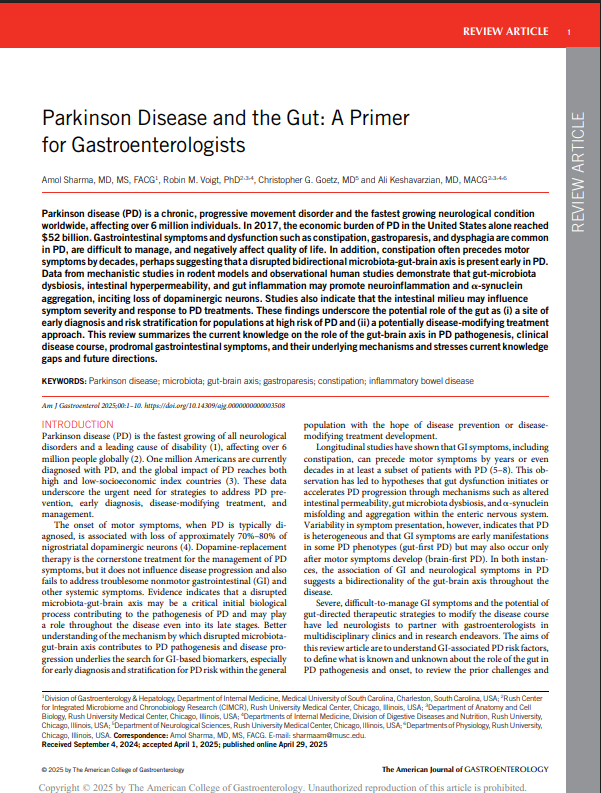Parkinson Disease and the Gut: A Primer for Gastroenterologists
April 2025 | The American Journal of Gastroenterology
Abstract
Parkinson disease (PD) is a chronic, progressive movement disorder and the fastest growing neurological condition worldwide, affecting over 6 million individuals. In 2017, the economic burden of PD in the United States alone reached $52 billion. Gastrointestinal symptoms and dysfunction such as constipation, gastroparesis, and dysphagia are common in PD, are difficult to manage, and negatively affect quality of life. In addition, constipation often precedes motor symptoms by decades, perhaps suggesting that a disrupted bidirectional microbiota-gut-brain axis is present early in PD. Data from mechanistic studies in rodent models and observational human studies demonstrate that gut-microbiota dysbiosis, intestinal hyperpermeability, and gut inflammation may promote neuroinflammation and α-synuclein aggregation, inciting loss of dopaminergic neurons. Studies also indicate that the intestinal milieu may influence symptom severity and response to PD treatments. These findings underscore the potential role of the gut as (i) a site of early diagnosis and risk stratification for populations at high risk of PD and (ii) a potentially disease-modifying treatment approach. This review summarizes the current knowledge on the role of the gut-brain axis in PD pathogenesis, clinical disease course, prodromal gastrointestinal symptoms, and their underlying mechanisms and stresses current knowledge gaps and future directions.

